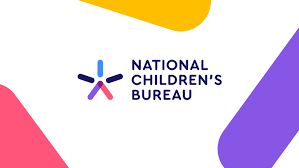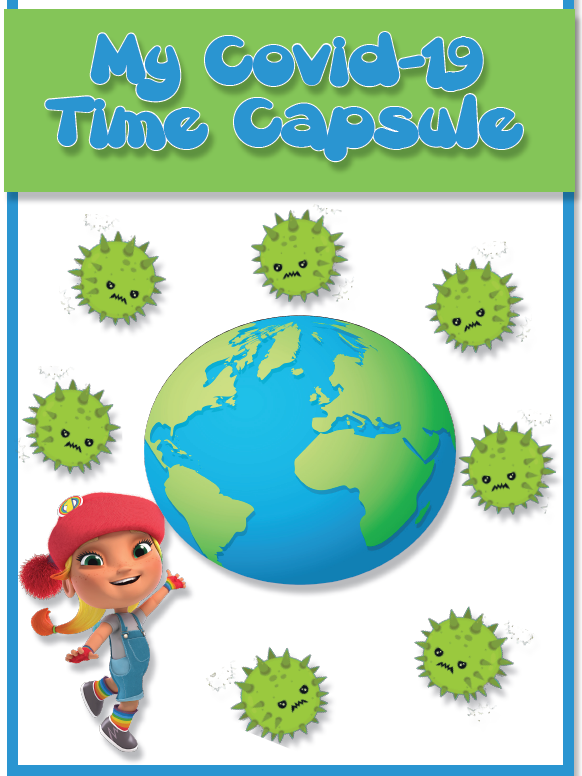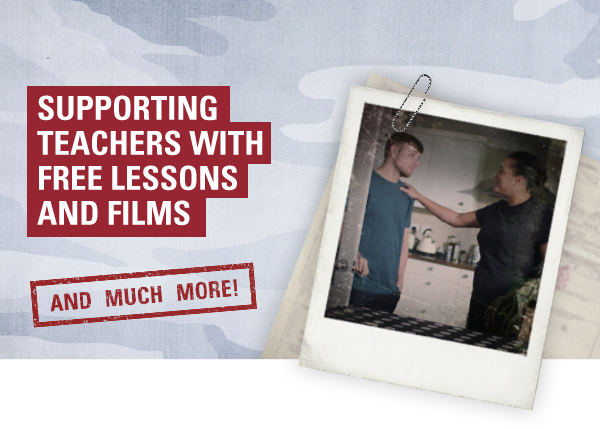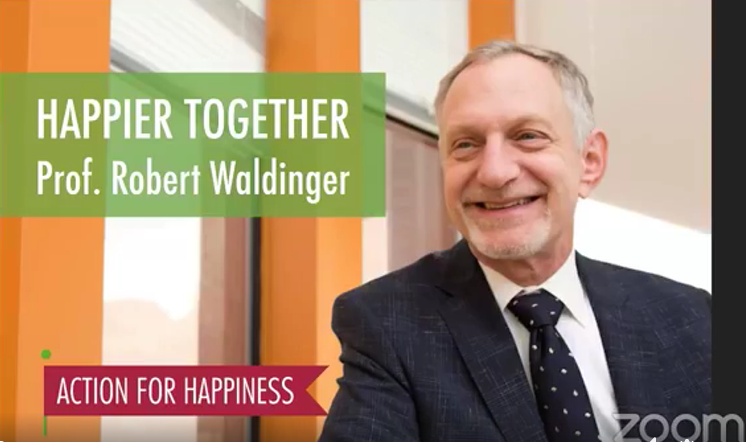Returning to School after Lock down
In this section, Lucy Stevens and Fiona Quan (staff at Gloucestershire Healthy Living and Learning – GHLL) and Dr Melissa Parry (Educational Psychology Service) have created a brief double-sided leaflet with general advice and top tips. In addition to this, a number of case studies are included with some suggestions and strategies from school staff, GHLL and Educational Psychology Service. There is a recorded example for primary aged children and secondary aged young people for each area, and the advice has also been typed for reference.
The case studies provide some examples to try but these are not exhaustive, as each child and young person, their situation or circumstances will be different. Further individual advice and referrals to relevant services or agencies for more support may be required. Also, it is important to remember that school staff are available and happy to help – please do not be afraid to seek support from them!
Case Study examples for Primary and Secondary age pupils
- Are you concerned about a child:
- Anxiety and Worry
- Screen time
- Loss and Bereavement
- Reconnecting and peer relationships
- School engagement and separation anxiety
Take a look at these case study examples and advice on these topics from our Educational Psychologist.
VIDEO Primary Anxiety
VIDEO Primary Screen Time
VIDEO Primary Loss and Bereavement
VIDEO Primary Reconnecting and Peer Relationships
VIDEO Primary School Engagement and Separation Anxiety
VIDEO Secondary Anxiety
VIDEO Secondary Screen Time
VIDEO Secondary Loss and Bereavement
VIDEO Secondary Reconnecting and Peer Relationships
VIDEO Secondary School Engagement and Separation An
Post COVID19 resources

Primary schools given support on mental health and wellbeing
The Schools’ Wellbeing Partnership, in consultation with the Department for Education, has published support for primary schools to help them prepare their recovery from the Covid-19 pandemic so that the mental health and wellbeing of the whole school community is protected.
The Coronavirus crisis has been one of the most challenging times that schools have ever faced. They have achieved a remarkable amount in making sure that children and young people have been kept safe and able to continue learning.
However, the pandemic is likely to have affected children and young people’s mental health and wellbeing, both now and in the longer-term.
Supporting the whole school’s mental health needs is more important than ever, as children and young people adjust to the return to school.
The tool builds on the eight principles set out in Public Health England’s guidance: Promoting children and young people’s emotional health and wellbeing: a whole school and college approach, and shows how schools can promote and support mental wellbeing through all aspects of school life.
The tool is designed to support senior leadership teams seeking to build on their current practice, providing information about the wide range of mental health and wellbeing resources available, and starting a conversation about the practical steps the school can take to support staff and pupil wellbeing.
This video-webinar is intended as a starting point to get you thinking about what a ‘recovery curriculum’ means in your school and what you can do to start planning for embedding a recovery curriculum now.
This session will cover:
- What are the key concerns for young people returning to school?
- The role of PSHE education vs pastoral care
- Recommendations for immediate, medium and long term responses that could form a recovery curriculum
Recovery Curriculum
A Recovery Curriculum: Loss and Life for our children and schools post pandemic.
How will it be for children when they return to school? It would be naive to think that they will pick up where they left off on the day their school went into lock down.
We have been analysing the loss children have suffered during this time, and the potential anxiety and trauma it may cause, with significant impact on their ability to learn effectively.
We have built the construct of a Recovery Curriculum, enabling schools to consider the processes they will need to put in place to successfully transition children back to school. As the word ‘construct’ suggests, this is a process of building, of co -constructing, a curriculum that is responsive to the needs of children, that harvests their experience and makes sense of it emotionally as well as cognitively.
A Community of Practice , to exchange and develop ideas has been set up on http://www.recoverycurriculum.org
On May 1st a podcast will be launched there , which is a powerpoint version of the Recovery Curriculum Think Piece , with Professor Carpenter speaking to the slides. We hope this will facilitate staff training on line in these uncertain times.Further podcasts are being recorded and will be made available on that website. Links to these podcasts will also be posted on barrycarpentereducation.com
In the coming weeks six school leaders will discuss their responses to the implications of a Recovery Curriculum in their school setting ( Primary, Secondary, and Special) In particular the pedagogy, resources and also the mental health of the children, will be considered. This podcast series will be available on: https://www.evidenceforlearning.net/recoverycurriculum
Barry Carpenter Professor of Mental Health in Education, Oxford Brookes University
Click below or here to download & view.
Suggested school activities
Suggested school activities and ideas for engaging whole school community in Covid 19 experiences
Trauma Informed Resources
https://www.traumainformedschools.co.uk/resources
Talk Plus
Problem solving is an evidence based intervention for the treatment of low mood or anxiety.
This workbook from TalkPlus can be used either alone or with the support of your Psychological Wellbeing Practitioner.
Mental Health Foundation - Doing good does you good
As part of the Mental Health Foundation’s work to help people lead mentally healthy lives, they have produced this guide to show the positive impact that helping others can have on your own mental health, including some tips and suggestions to help you get started. So, take a few minutes, have a read and think about doing something for a friend or a stranger today.
Youth Focus - Mindful colouring
Mindful colouring asks us to focus on how we choose and apply colour in a design to bring our awareness to the present moment. This process is similar to meditation, we let go of any thoughts about tomorrow or yesterday, or what we are going to do when we finish. Have a go.
Project OAKS
Project OAKS is a Gloucestershire mental health initiative created by a multi-agency team, working together to improve mental health outcomes for Gloucestershire families. It has been designed on the principle that when children do better, so will parents and when parents do better, so will their children.
https://www.ghll.org.uk/resources/mental-health-intervention---project-oaks/
Beyond Fed Up
Promoting emotional resilience in young people
https://www.ghll.org.uk/pink-safeguarding-curriculum/pink-curriculum-resources/beyond-fed-up/
Make me a superhero
‘Make me a Superhero’ provides innovative and exciting ways to enable and encourage children and young people to develop resilience. It helps children to develop their positive inner coach, develop self-confidence and a pride in ‘being me’. The aim is to give children the skills to think before acting in order to create a virtuous circle in life.
https://www.ghll.org.uk/resources/resilience/
 My Covid-19 time capsule
My Covid-19 time capsule
In the Spring of 2020, the whole world experienced a global pandemic. During this time, everybody on the planet experienced a range of emotions and different way of life.
This booklet helps a child tell their own story.
Once the booklet is completed, it will be locked away for their future self to read or for someone in the future to find.
Facts4life
Suggested ideas and resources for supporting primary aged children to make their transition back to school and to manage their recent experiences.
Coronavirus Support for Young People
The outbreak of coronavirus and self-isolation has been difficult for many young people. If you are struggling, we understand and are here to help.
Coronavirus Support for Young People
Tutorials for Secondary students back at schools
Character Education resources from The British Army
 Can your students help?
Can your students help?
A cyber-attack has cut off all power to the UK and the community needs to pull together to protect the most vulnerable and keep everyone sage. What would your students do? Would they do the right thing?
Get Active with Get Set
International Olympic Day, June 23, is just around the corner. Held on the birthday oft he modern Olympic Movement, International Olympic Day is a chance for people all over the world to get active and explore the spirit of the Games together.
Fun, free and flexible Olympic Day activities and resource help pupils move, learn and discover by teaching the Olympic values, exploring different cultures through sport, as well as encouraging all young people to get active whether at home with their family or at school.
To win an Olympic Day t-shirts class pack, simply share (or ask parents/ carers to share) how your school community will be celebrating International Olympic Day. Share by 29 June to enter the prize draw.
Inspired by International Olympic Day? Check out these home learning resources so pupils can learn about the history of the Olympics and Paralympic Games, discover new twists on Olympic and Paralympic sports to get active with their family at home, and understand the values of what it takes to be an Olympian or Paralympian.
 Happier Together with Professor Waldinger
Happier Together with Professor Waldinger
WHAT MAKES A GOOD LIFE? And what can we learn about human relationships and happiness from the longest ever study on adult life?
At this special event, Professor Robert Waldinger will explore the findings from Harvard Medical School's 75-year-long study and help us discover the key factors that really matter for a good life.
Robert will share insights about the vital nature of human relationships and how we can use these to improve our lives and help each other in this crisis and beyond.
https://www.facebook.com/actionforhappiness/videos/736776737069071/
Simon Says - Child Bereavement Support
A series of lessons and resources to help schools tackle childhood bereavement, courtesy of the Child Bereavement Support Service - Simon Says.
/coronavirus-bereavement-support-resource-pack.pdf
Young Minds
Helping your pupils through endings and new beginnings
Here we are again, at the end of another academic year – and what an unusual year it has been! We are in awe of the energy, commitment, and hard work you have shown this year; supporting pupils, families, and each other during this time. These last few days of the term lead us to reflect on ‘endings’ and how this may affect pupils and staff, especially if your end of term events look different to usual this year. There might be feelings of relief, loss, or like the year was cut short, and can also bring up memories of other ‘endings’ that people have experienced. It’s important to explore these feelings and understand how we are being affected by planned and unplanned endings.
Our Teachers’ Insights Group were very clear that as well as looking back over the successes and the tough times that have passed, it is also vital to focus on new beginnings and the opportunities that arise when something comes to an end. You’ll see this explored more in the resources below and we hope you and your pupils find it helpful to frame your experiences. The activities we have included can also be sent home with pupils, so they can explore them over the summer holidays or you may want to use them in your planning for the first few weeks back in September.
We wish you all a very happy, well-deserved, and restful summer holiday.
How can staff be supported?
To help staff and pupils reflect on the school year, this activity looks back on school memories and helps identify the new opportunities that arise from endings.
> Doors of Opportunity
How should I prepare for children coming back?
Building a sense of hope can help pupils cope with difficult goodbyes. This resource encourages pupils to explore their dreams and aspirations for the future.
> Hope Clouds Activity
How do I support my students at this time?
This easy worksheet can be completed at school or at home and focuses on celebrating achievements and highlights from this year.
> Celebrating Achievements
Supporting parents and carers during coronavirus
For both parents and pupils, think about the ways the whole family can look after each other during the summer holidays. Use our Wellbeing Bingo cards and see how many activities you can complete!
>Wellbeing Bingo Cards
Beyond Words
Lenny and Lily in Lockdown and Lenny and Lily Return to School will help children make sense of their experiences during the coronavirus pandemic, communicate their feelings and prepare for more change as they go back to the classroom. As the stories are told in pictures alone, it is not necessary for children to be able to read words to enjoy them. This means they are appropriate for pupils in both mainstream and special education settings.
Supporting text at the end of each story gives teaching staff and parents guidance on how to use the stories with children. Click here to view the website and to download the stories for free
Looking back and planning ahead toolkit
We’ve put together this toolkit to help you and your pupils reflect on 2020, and manage any end-of-term anxieties. We’re also sharing some resources to support the wellbeing of staff and parents and carers during this time.
We’re coming to the end of 2020, and it has been a uniquely challenging and difficult year for schools.
The Christmas holidays this year may be welcome for some staff and pupils, but anxiety-inducing for others. Children may be worried about what the festive season will look like this year, and school staff may be worried about how another break from schooling will impact pupils.
We have gathered together resources from lots of different organisations to help children, staff and parents reflect on 2020, and feel positive about 2021.
This toolkit includes:
- classroom activities
- wellbeing calendars
- good practice case studies
- apps
- audio guides
- and more
Ever wanted superhero powers? Well, now’s your chance.
We’ve teamed up with DC to create Wonder Woman-inspired resources for schools and families. Filled with awesome ideas and anchored in the recovery curriculum (Carpenter, B. and Carpenter, M., 2020), the fun free activities will help your young people develop skills such as courage, strength and teamwork using the power of sport.
The multi-level activity cards give a huge variety of options for group or individual work with quest cards to monitor progress.
At this time, it’s so important that we use all the (super)-powers we have to support the wellbeing of our young people. We hope you will have as much fun using these resources as we had creating them.
If you are in a school, please click here to access your resources.
If you are not in a school, please click here to access your resources.
Thoughts for returning to school
Checking in with my stuff Coming back to school

